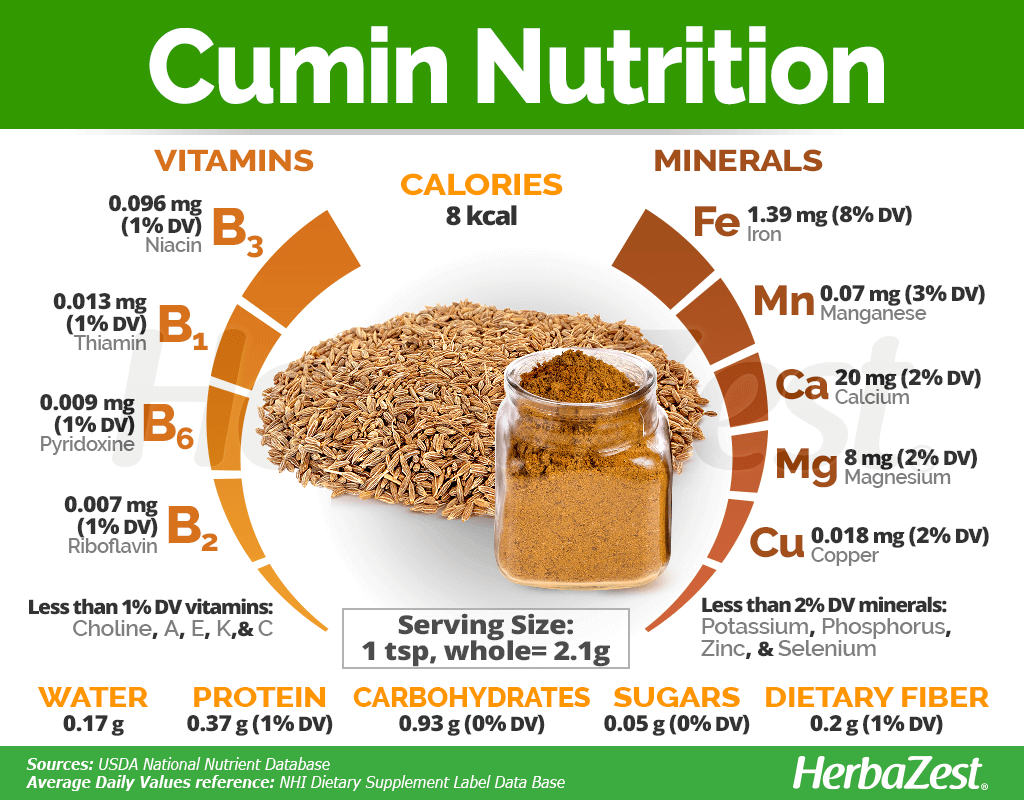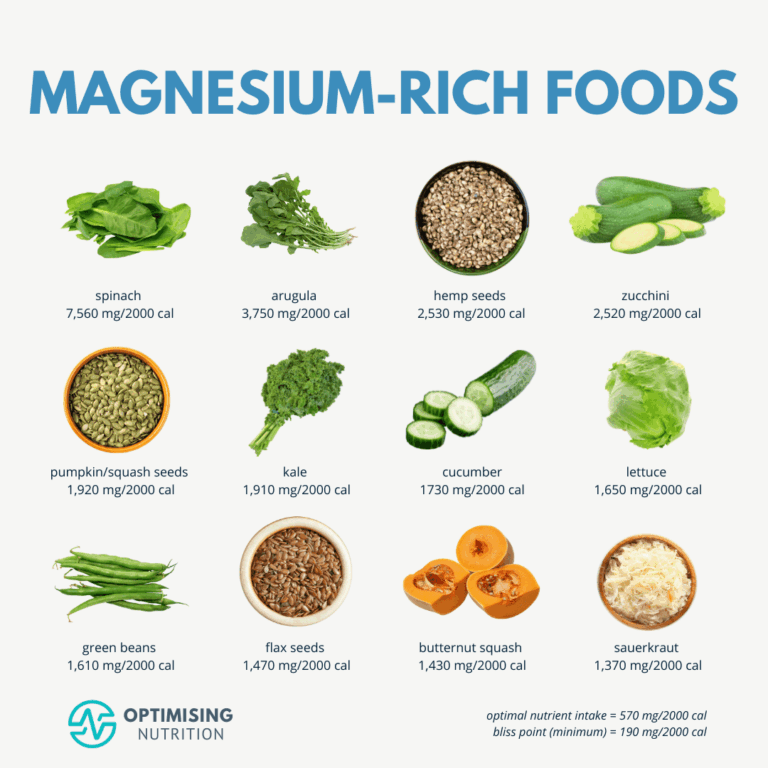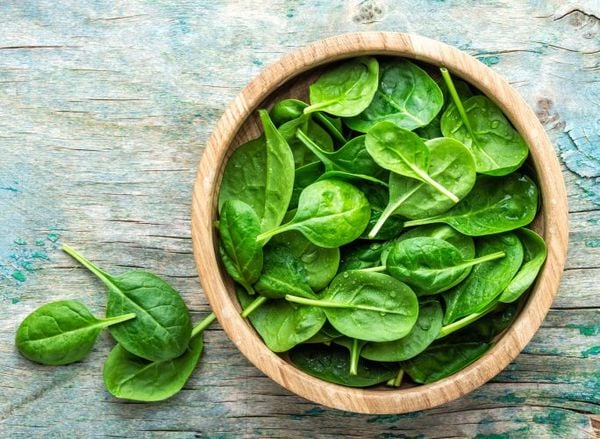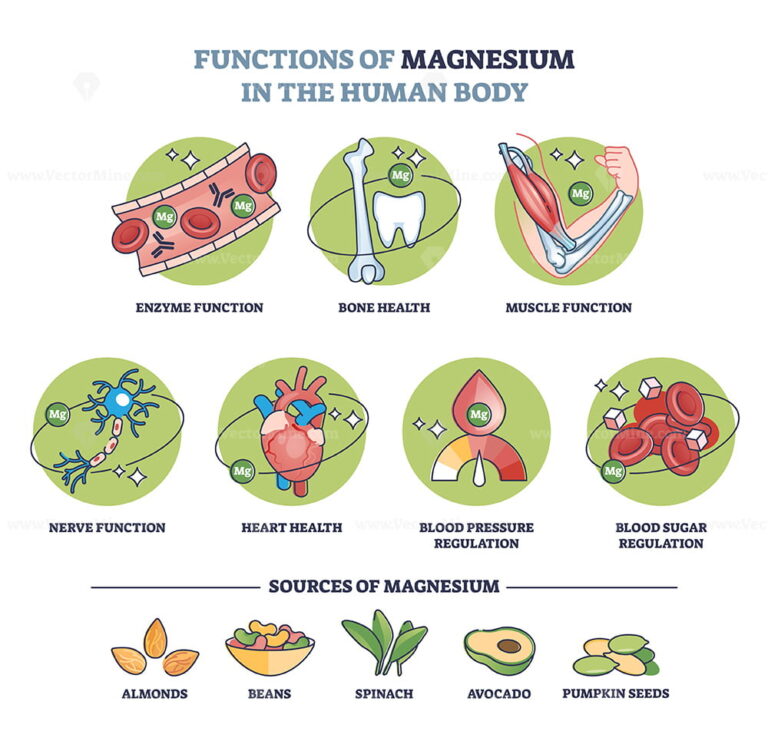One Spice, Seven Benefits: Why Cumin is a Nutritional Must-Have
In the grand tapestry of human history, few threads are as enduring, as fragrant, and as utterly transformative as those woven by spices. They have driven exploration, fueled economies, and graced the tables of emperors and commoners alike. Yet, amidst the exotic allure of saffron, the fiery punch of chili, and the sweet warmth of cinnamon, one humble seed often goes unsung, its profound power underestimated: cumin.
This unassuming spice, with its earthy aroma and distinctive flavor, is far more than a mere culinary ingredient. It is a nutritional powerhouse, a testament to ancient wisdom, and a modern scientific marvel. Join us on a journey through time and science as we uncover the seven magnificent benefits that firmly establish cumin as a nutritional must-have, a tiny seed with an epic story and monumental impact on our well-being.
A Journey Through Time: The Humble Seed’s Epic Tale
To truly appreciate cumin, we must first travel back millennia, to its origins in the Middle East, the Mediterranean, and India. Imagine the bustling markets of ancient Egypt, where cumin was not only a cherished culinary spice but also a vital component in mummification rituals, a testament to its perceived preservative and aromatic qualities. The Romans, connoisseurs of flavor, held cumin in high regard, often using it as a substitute for the more expensive black pepper. Pliny the Elder even noted its medicinal properties.
In India, cumin (or jeera, as it’s known) became an indispensable cornerstone of Ayurvedic medicine, revered for its digestive and detoxifying properties. Its journey continued along the Silk Road, spreading its influence across Asia, Africa, and eventually, with the arrival of European explorers, to the Americas. Spanish and Portuguese colonizers carried it to the New World, where it swiftly integrated into the vibrant cuisines of Mexico, Central, and South America, becoming a defining flavor in dishes like tacos, enchiladas, and mole.
This global odyssey speaks volumes about cumin’s inherent appeal and utility. It transcended cultures, climates, and cuisines, adapting and enriching every culinary landscape it touched. But its enduring presence isn’t just about taste; it’s about the tangible benefits that generations instinctively recognized and modern science is now meticulously validating.
The Sensory Signature: What Makes Cumin, Cumin?
Before delving into its health benefits, let’s briefly appreciate cumin’s unique sensory profile. Derived from the dried seed of the Cuminum cyminum plant, a flowering member of the parsley family, cumin comes in various forms: whole seeds, ground powder, and even black cumin (which is a different species, Nigella sativa, though also highly beneficial).
The whole seeds, small and elongated, boast a robust, warm, slightly bitter, and earthy aroma, which intensifies wonderfully when dry-roasted. Grinding them releases a more concentrated, pungent, and almost smoky flavor. This distinctive profile comes from its rich array of volatile organic compounds, particularly cuminaldehyde, cymene, and beta-pinene, which are responsible for its characteristic aroma and much of its medicinal punch. It’s a flavor that can ground a dish, add depth to a stew, or provide a piquant counterpoint to sweet ingredients.
Now, let’s unlock the treasure chest of health benefits hidden within this remarkable seed.
>
Unveiling the Seven Pillars of Wellness: Cumin’s Nutritional Mandate
1. The Digestive Dynamo: A Symphony for Your Gut
Perhaps cumin’s most celebrated and historically recognized benefit lies in its remarkable ability to support and soothe the digestive system. For centuries, it has been the go-to remedy for various gastrointestinal discomforts, from indigestion and bloating to flatulence and stomach cramps. Modern science is now providing concrete explanations for this traditional wisdom.
The Mechanism:
Cumin stimulates the secretion of pancreatic enzymes, which are crucial for the breakdown of carbohydrates, fats, and proteins in our food. This enhanced enzymatic activity means more efficient digestion and absorption of nutrients. Furthermore, compounds like cuminaldehyde and thymol present in cumin are known for their carminative properties. This means they help relieve gas and bloating by relaxing the digestive tract muscles, allowing trapped gases to pass more easily.
Studies have shown that cumin can increase the activity of digestive enzymes like amylase, lipase, and protease. It also promotes the release of bile from the liver, which is essential for the digestion and absorption of fats and fat-soluble vitamins. For individuals struggling with irritable bowel syndrome (IBS), preliminary research suggests that cumin extract can significantly improve symptoms such as abdominal pain, bloating, and stool consistency. Its anti-inflammatory effects also contribute to a healthier gut lining.
Practical Application:
A simple cumin tea (boil a teaspoon of seeds in water) can be a soothing balm for an upset stomach. Adding cumin powder to lentils, beans, and other gas-producing foods is a time-honored way to mitigate their effects.
2. The Antioxidant Powerhouse: Shielding Your Cells from Within
In our modern world, we are constantly bombarded by environmental toxins, stress, and processed foods, all of which contribute to the formation of free radicals in our bodies. These unstable molecules cause oxidative stress, a process linked to cellular damage, accelerated aging, and the development of chronic diseases like cancer, heart disease, and neurodegenerative disorders. Cumin, however, stands as a formidable defender.
The Mechanism:
Cumin is brimming with potent antioxidants, including phenolic compounds, flavonoids, and terpenoids. Specifically, cuminaldehyde, cymene, and beta-pinene, while contributing to its flavor, are also powerful free radical scavengers. These compounds actively seek out and neutralize harmful free radicals, protecting cells, DNA, and proteins from damage.
This robust antioxidant capacity is a cornerstone of cumin’s health benefits. By reducing oxidative stress, cumin helps maintain cellular integrity, supports healthy tissue function, and can play a preventative role against a wide array of degenerative conditions. It essentially acts as an internal shield, fortifying your body’s natural defenses.
Practical Application:
Incorporating cumin into your daily cooking ensures a continuous supply of these vital antioxidants, offering ongoing protection against cellular damage. Think of it as a daily dose of internal armor.
3. The Anti-Inflammatory Ally: Quelling the Internal Fire
Chronic inflammation is increasingly recognized as a silent epidemic, a low-grade, persistent immune response that underlies many of today’s most prevalent chronic diseases, including arthritis, cardiovascular disease, diabetes, certain cancers, and autoimmune conditions. Cumin, with its inherent anti-inflammatory properties, offers a natural and gentle way to help manage this pervasive issue.
The Mechanism:
The same active compounds that give cumin its antioxidant prowess – particularly cuminaldehyde and various flavonoids – are also responsible for its anti-inflammatory effects. These compounds work by modulating inflammatory pathways in the body, specifically by inhibiting the production of pro-inflammatory mediators such as cytokines and enzymes like COX-2 (cyclooxygenase-2), which is targeted by many anti-inflammatory drugs.
By reducing systemic inflammation, cumin can help alleviate pain and swelling associated with inflammatory conditions. For instance, in studies, cumin has shown promise in reducing symptoms of conditions like rheumatoid arthritis and osteoarthritis by dampening the inflammatory response that contributes to joint degradation and pain. Its ability to soothe irritation extends beyond the gut, offering a broad spectrum of anti-inflammatory relief.
Practical Application:
Regular inclusion of cumin in your diet can contribute to a reduction in overall inflammatory load. Consider it a subtle yet powerful tool in your anti-inflammatory lifestyle arsenal, working synergistically with other healthy habits.
4. The Blood Sugar Balancer: A Sweet Relief for Metabolic Health
With the global rise in type 2 diabetes and metabolic syndrome, managing blood sugar levels has become a critical health concern. Emerging research suggests that cumin may play a beneficial role in this area, offering a natural adjunct to conventional treatments and lifestyle interventions.
The Mechanism:
Studies indicate that cumin can help improve insulin sensitivity, meaning your body’s cells become more responsive to insulin, allowing glucose to be efficiently absorbed from the bloodstream. It may also help regulate the enzymes involved in glucose metabolism, potentially slowing down the absorption of sugar into the blood after meals. Furthermore, some research points to cumin’s ability to protect the beta cells in the pancreas, which are responsible for producing insulin, thereby preserving their function.
Animal studies and some human trials have demonstrated that cumin supplementation can lead to significant reductions in fasting blood glucose levels, HbA1c (a marker of long-term blood sugar control), and insulin resistance in individuals with diabetes or pre-diabetes. While not a cure, it represents a promising natural compound for supporting metabolic health.
Practical Application:
Adding cumin to your meals, especially those rich in carbohydrates, could help moderate post-meal blood sugar spikes. It’s a simple, flavorful way to contribute to better glucose management.
5. The Cholesterol Crusader & Heart Health Guardian: A Friend to Your Arteries
Cardiovascular disease remains the leading cause of death globally, making strategies for heart health paramount. Cumin steps up as a valuable ally, particularly in its ability to positively influence cholesterol levels and contribute to overall arterial well-being.
The Mechanism:
Multiple studies have shown that cumin can significantly lower levels of LDL ("bad") cholesterol and triglycerides, while simultaneously increasing HDL ("good") cholesterol. This beneficial lipid-modulating effect is partly attributed to its antioxidant and anti-inflammatory properties, which protect blood vessels from damage and plaque formation. Cumin also contains phytosterols, plant compounds that structurally resemble cholesterol and compete with it for absorption in the gut, thereby reducing the amount of cholesterol entering the bloodstream.
By improving the lipid profile, cumin helps reduce the risk of atherosclerosis (hardening of the arteries), a primary driver of heart attacks and strokes. Its overall protective effect on the cardiovascular system is further enhanced by its ability to reduce oxidative stress and inflammation, both of which are key contributors to heart disease progression.
Practical Application:
Regularly consuming cumin, especially roasted whole seeds, can be a delicious way to support your heart health. Think of it as a small, consistent investment in your long-term cardiovascular well-being.
6. The Immunity Booster: Fortifying Your Body’s Defenses
A robust immune system is our first line of defense against infections, illnesses, and even chronic diseases. Cumin contributes to a stronger immune response through several pathways, making it a valuable addition to your diet, especially during cold and flu seasons.
The Mechanism:
Firstly, cumin is an excellent source of iron, a vital mineral crucial for the proper functioning of the immune system. Iron deficiency can impair immune cell proliferation and maturation, making the body more susceptible to infections. Just one teaspoon of ground cumin can provide a significant portion of your daily iron needs.
Beyond iron, cumin possesses natural antimicrobial and antiseptic properties. Its active compounds have been shown to inhibit the growth of certain bacteria and fungi, offering a mild protective effect against common pathogens. Furthermore, the strong antioxidant content in cumin helps protect immune cells from oxidative damage, ensuring they can perform their protective duties effectively. By supporting gut health (as discussed in Benefit 1), cumin indirectly boosts immunity, as a healthy gut microbiome is intimately linked to a strong immune system.
Practical Application:
Incorporate cumin into soups, stews, and lentil dishes to boost your iron intake and leverage its immune-supporting qualities. A pinch of cumin can be a proactive step toward better health.
7. The Weight Management Wingman: Aiding Your Journey to a Healthier You
For many, maintaining a healthy weight is a continuous challenge. While no single spice is a magic bullet for weight loss, cumin has shown promising potential as a supportive tool within a broader healthy lifestyle, helping to address several factors related to weight management.
The Mechanism:
Research suggests that cumin may help boost metabolism, potentially increasing the body’s energy expenditure. Some studies indicate that cumin can aid in fat burning, particularly abdominal fat, by influencing lipid metabolism. Its anti-inflammatory properties are also relevant here; obesity is often associated with chronic low-grade inflammation, and by reducing this inflammation, cumin may help improve metabolic function and facilitate weight loss.
A notable human study demonstrated that women who consumed cumin powder daily experienced significant reductions in weight, BMI, waist circumference, and body fat compared to a control group. The exact mechanisms are still being fully elucidated, but it’s believed to involve a combination of improved insulin sensitivity, enhanced fat oxidation, and perhaps even a subtle appetite-regulating effect.
Practical Application:
Adding cumin to your daily diet, whether in meals or as a supplement (under guidance), can be a beneficial component of a holistic weight management strategy, working best when combined with a balanced diet and regular exercise.
>
Beyond the Magnificent Seven: A Micro-Nutrient Powerhouse
While the seven benefits outlined above highlight cumin’s most impactful contributions, its nutritional profile extends even further, revealing a wealth of essential micronutrients that support overall health:
- Manganese: Crucial for bone health, metabolism, and antioxidant defense.
- Copper: Essential for energy production, iron metabolism, and nerve function.
- Calcium: Vital for strong bones and teeth, muscle function, and nerve signaling.
- Magnesium: Involved in over 300 biochemical reactions, supporting muscle and nerve function, blood glucose control, and blood pressure regulation.
- Phosphorus: Important for bone health, energy storage, and DNA formation.
- B Vitamins: Cumin contains small amounts of several B vitamins, including B1 (thiamine), B2 (riboflavin), B3 (niacin), and B6 (pyridoxine), which are essential for energy metabolism and nervous system function.
These additional nutrients underscore cumin’s role not just as a medicinal spice, but as a genuine contributor to a nutrient-dense diet.
From Ancient Elixir to Modern Kitchen: Embracing Cumin’s Culinary Charm
The true beauty of cumin lies not just in its scientific benefits, but in its effortless integration into everyday cooking. Its versatility is astounding, capable of transforming simple ingredients into culinary masterpieces.
How to Use Cumin:
- Whole Seeds: Roasting whole cumin seeds in a dry pan until fragrant intensifies their flavor dramatically. They can then be added to curries, stews, rice dishes, or used as a tempering agent in Indian cooking (sautéing in oil to infuse the fat with flavor). They add a delightful textural pop.
- Ground Cumin: The most common form, ground cumin is perfect for rubs, marinades, chili powders, soups, and vegetable dishes. Its powdered form blends seamlessly into sauces and dressings.
- Cumin Oil/Extract: While less common for home cooking, concentrated extracts are used in some supplements and food products.
Culinary Inspirations:
- Indian & Middle Eastern: The heart of countless curries, dals (lentil dishes), biryanis, tagines, and hummus.
- Mexican & Latin American: Essential in tacos, burritos, enchiladas, chili con carne, and various salsas.
- North African: A key component of harissa paste and spice blends for couscous and meat dishes.
- Beyond Tradition: Don’t limit yourself! Cumin pairs wonderfully with roasted root vegetables (carrots, potatoes, sweet potatoes), grilled meats, scrambled eggs, and even as a surprising addition to homemade bread. A sprinkle over avocado toast can be a revelation.
Tip: Always try to buy whole cumin seeds and grind them fresh when needed. The flavor and aroma are significantly more vibrant and potent than pre-ground varieties, which can lose their potency quickly.
Integrating Cumin into Your Daily Life: Simple Steps
Making cumin a nutritional must-have doesn’t require a radical overhaul of your diet. Small, consistent changes can yield significant benefits:
- Morning Boost: Add a pinch of ground cumin to your scrambled eggs or a savory oatmeal bowl.
- Lunchtime Lift: Sprinkle roasted cumin seeds over your salads, wraps, or grain bowls.
- Dinner Delight: Incorporate it into virtually any savory dinner dish – from roasted chicken and vegetables to lentil soups and bean stews.
- Snack Smart: Mix ground cumin into a yogurt dip for vegetables, or sprinkle it over popcorn.
- Cumin Tea: For digestive aid, steep 1 teaspoon of whole cumin seeds in hot water for 5-10 minutes, strain, and enjoy.
Navigating Cumin’s Path: Considerations and Quality
While cumin is overwhelmingly safe and beneficial for most people, a knowledgeable audience appreciates a complete picture:
- Allergies: Though rare, some individuals may have an allergic reaction to cumin.
- Digestive Sensitivity: In very large quantities, or for those with extremely sensitive digestive systems, cumin might cause mild stomach upset.
- Blood Sugar/Blood Thinners: Due to its potential effects on blood sugar, individuals on diabetes medication should monitor their glucose levels closely if significantly increasing cumin intake. Similarly, its mild blood-thinning properties mean those on anticoagulant medications should consult their doctor regarding very high consumption.
- Quality Matters: Choose organic, ethically sourced cumin whenever possible. Store whole seeds in an airtight container in a cool, dark place for up to a year. Ground cumin should be used within 3-6 months for optimal flavor and potency.
The Grand Finale: Cumin’s Enduring Legacy
From the ancient sands of Egypt to the vibrant kitchens of the modern world, cumin has embarked on an incredible journey, silently weaving its magic through cultures, cuisines, and centuries. Its story is one of quiet resilience, profound utility, and unwavering benefit.
The "One Spice, Seven Benefits" framework merely scratches the surface of this remarkable seed’s potential. It encapsulates a wisdom passed down through generations, now affirmed and illuminated by the lens of modern science. Cumin isn’t just a flavor enhancer; it’s a testament to the powerful, often overlooked, nutritional treasures that nature provides.
So, the next time you reach for your spice rack, pause for a moment before you grab that jar of cumin. Recognize it not just as a common condiment, but as a nutritional must-have, a tiny seed brimming with historical significance and profound wellness potential. Let its earthy aroma and warming flavor remind you of its epic journey and its enduring legacy, ready to infuse your life with health, vitality, and an undeniable deliciousness. Embrace cumin, and unlock a world of well-being, one fragrant pinch at a time.






